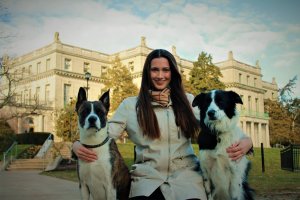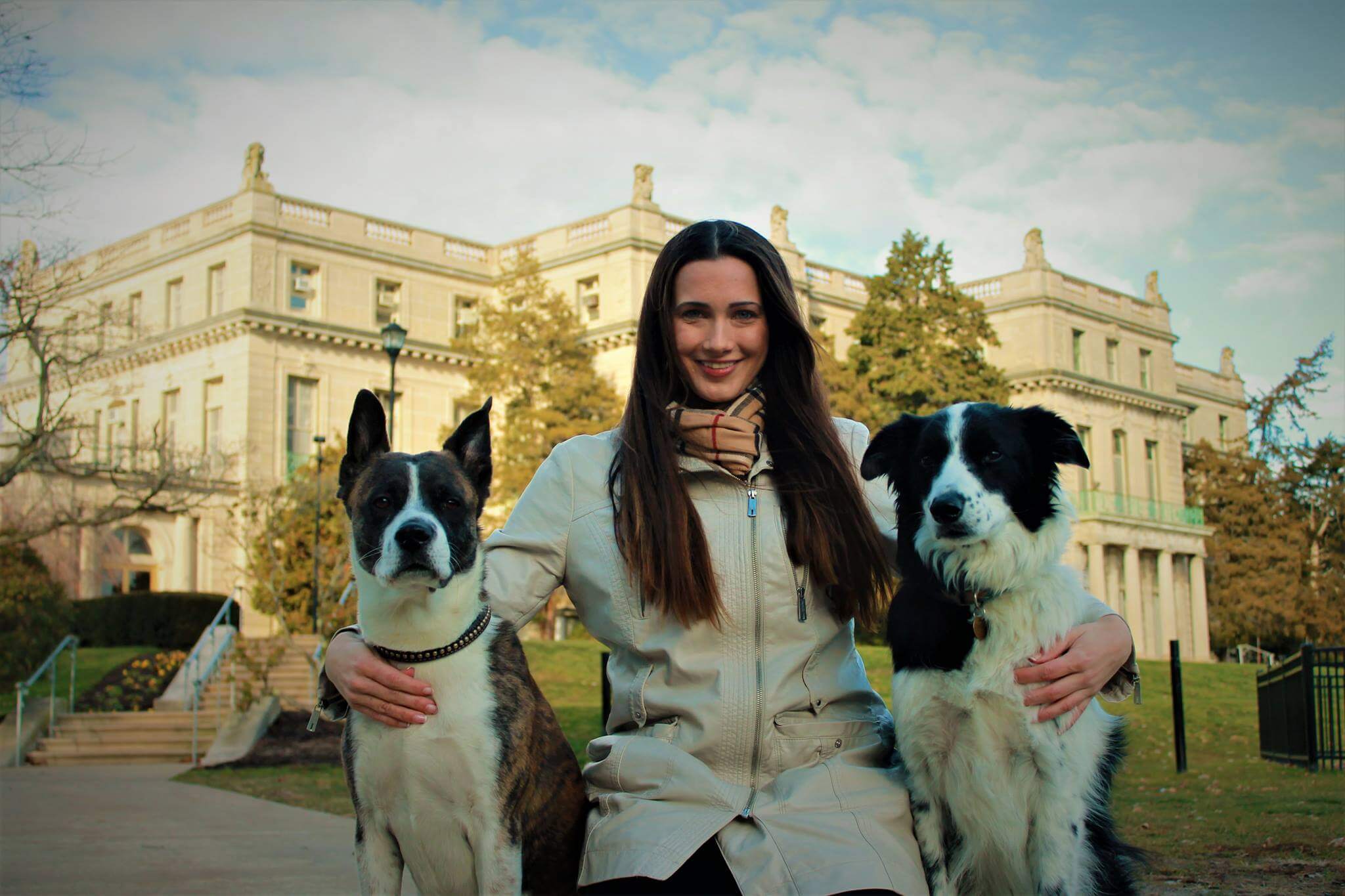 Lindsay Mehrkam, Ph.D., assistant professor of psychology and principal investigator of the Human-Animal Wellness Collaboratory (HAWC) at Monmouth University, presented an invited lecture at the Association for Animal Welfare Advancement annual National Council on Pet Population Research Symposium on Nov. 18. The symposium, held in Houston, Texas, was sponsored by Purina Petcare and Petfinder.
Lindsay Mehrkam, Ph.D., assistant professor of psychology and principal investigator of the Human-Animal Wellness Collaboratory (HAWC) at Monmouth University, presented an invited lecture at the Association for Animal Welfare Advancement annual National Council on Pet Population Research Symposium on Nov. 18. The symposium, held in Houston, Texas, was sponsored by Purina Petcare and Petfinder.
Mehrkam’s hour-long presentation titled, “A Multidimensional Behavioral Analysis of Dog-Dog Playgroups in Shelters and Their Impacts on Human and Canine Welfare” covered a three-year line of research examining the benefits of allowing shelter dogs to play together.
Much of the research was funded by a $130,000 grant from Maddie’s Fund and the Monmouth University Summer Scholars Program. The work was conducted at urban animal shelters in which Monmouth University students traveled to during the semester to collect physiological and behavioral data on shelter dogs enrolled in the study. These results were then compared across shelters that ran different types of playgroups or no playgroups at all.
“It is well-established that dogs experience behavioral deterioration the longer they are housed in a shelter environment. The use of playgroups in shelters has not been a traditional approach to managing shelter dog welfare, but has been rapidly increasing in recent years,” Mehrkam said. “However, the practice of implementing playgroups has far outpaced systematic scientific evaluation; as a result, there is much debate among shelter professionals about what is truly the best, most effective way to run dog-dog playgroups that maximizes benefits of welfare and adoptability and minimizes health and safety risks.”
In addition, the research explored how running playgroups might affect the job satisfaction and well-being of shelter staff. Other scientific presentations at the symposium were given by animal welfare professionals in both academia and industry organizations, including Harvard University and MIT, Nestle Purina, the Animal Care Centers of NYC.
The work presented was a collaboration between Monmouth University, Penn State University, community animal shelters, and a dedicated team of Monmouth University undergraduate students in HAWC. Students that helped on the project included Laura Swinyer, Shannon Ravaschiere, McKenna Douglass, Marissa Kraemer, Alexandra Heaney ’16, Megan Conchar ’19, Tyra Ward ’19, Angelina Powers ’18, Cassondra Giarrusso ’19, Norelle Bondar ’19, and Jessica LaSala ’19. The findings are currently being prepared for publication, with several students as co-authors.
The Human-Animal Wellness Collaboratory was developed in fall 2016. HAWC is a research and education lab dedicated to the scientific understanding of human-animal interactions and to the application of that knowledge for improving the lives of both humans and animals in society. Current projects in HAWC include extending applied behavior analysis to nonhuman animals as well as how the use and evaluation of animals in educational settings improves animal welfare and student learning outcomes. In addition, HAWC is also preparing to open a new behavioral services research clinic for pet dogs and cats owned by members of the Monmouth University community.
Additional Links

